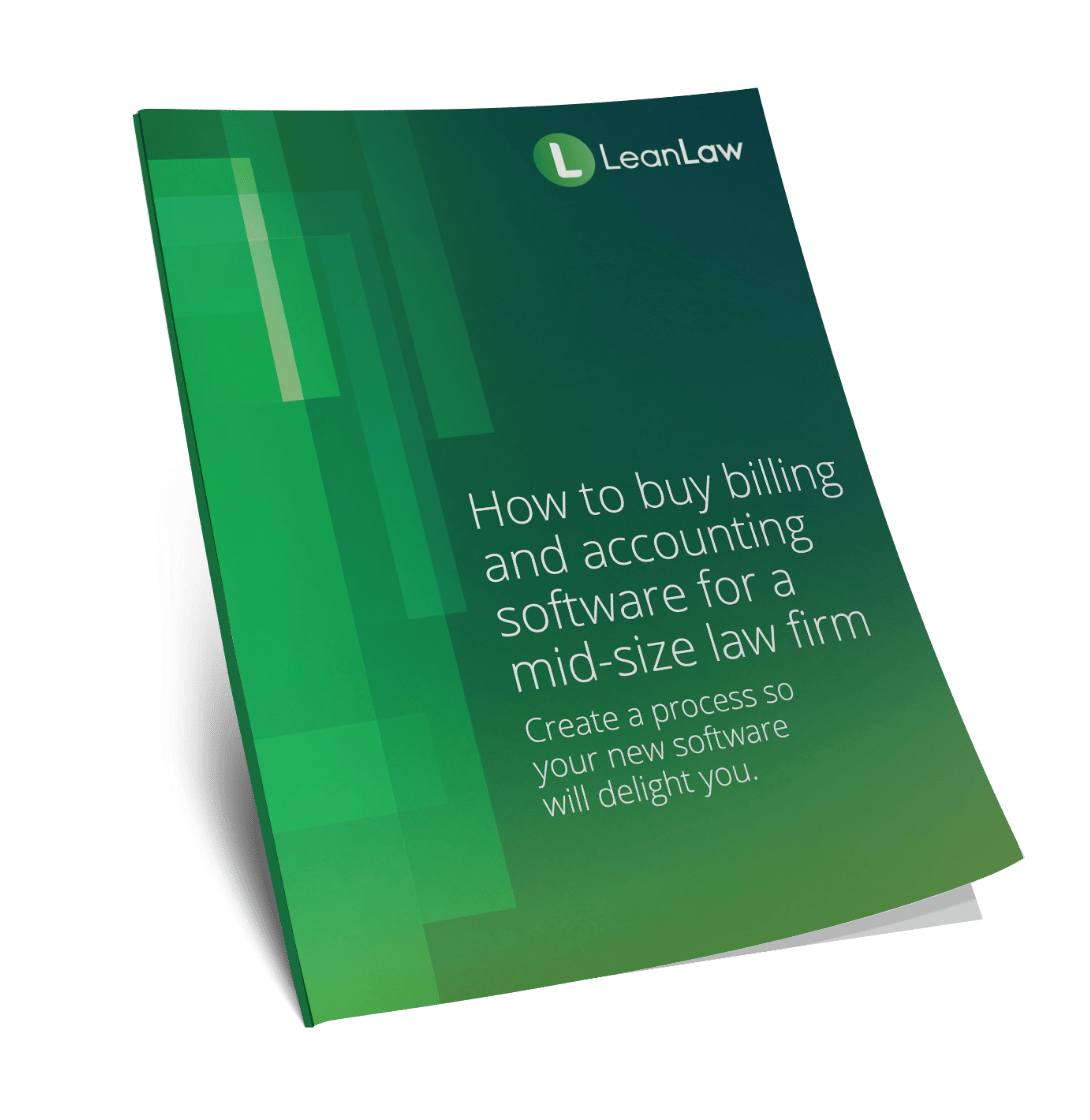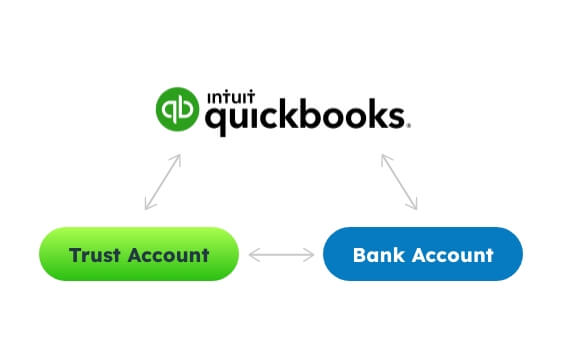
For many of us, the rapid changes in technology over the past few years have been a head-spinner, to put it mildly.
From remote work and Zoom meetings to Cloud-based software and virtual collaboration tools, industries everywhere have witnessed a significant transformation in how they operate their businesses and care for their clients and customers.
And the legal profession is no exception to this.

Key Takeaways
- The days of using in-house servers to keep a law firm operating efficiently and effectively are behind us, and online legal practice management is definitely the new norm.
- Because technology is advancing so quickly, legal teams need to be aware of not only what online and cloud-based legal software is, but they also need to know what is right for their firm.
- Incorporating the right legal software that is cloud-based into your firm is not hard, as long as you know what you need to have on hand…and what online-based law practice management you don’t.
As law firms continue to adapt to this new digital landscape, one area that stands out is the need for more online legal practice management software.
With its potential to revolutionize how firms manage cases, clients, and operations, it’s worth exploring if (and when) online law practice management software is the right solution for your law firm.
Let’s do a deeper dive into the world of online legal practice management and uncover its benefits and how it can make a difference for you, your staff, and your clients.
What Do We Mean by Online Law Practice Management Software?
Online law practice management software refers to any web-based practice management software that streamlines and centralizes various aspects of your law firm.
Whereas in the past, law firms only had the option to install and run software locally on their own servers, now online law practice management software operates entirely in the Cloud.

This means that all data, documents, and tools are now accessible via your law firm’s web browser to any of your attorneys or staff who have access — as long as they have an internet connection — eliminating the need for complex installations or IT infrastructure.
It also means that your attorneys and staff can work from anywhere (and at anytime) allowing for remote work when needed.
Online law practice management software offers the same comprehensive set of tools and features that in-house servers have in the past.
This type of software can be just as effective for case management, client communication, document management, billing and invoicing, and calendaring as well as plenty of other administrative tasks associated with a law practice.
With online law practice management software, law firms can securely store and access case information, track important deadlines and events, manage client communications, collaborate with team members, generate invoices, and monitor financial performance. The biggest difference being that there is no longer a need for clunky and cumbersome on-premise software installations.
Instead, all the necessary tools and features are conveniently accessible through a firm’s web-based platform.
The software typically includes features such as document storage and sharing, time tracking, task management, contact management, and reporting capabilities. The cloud-based nature of this software enables remote access, allowing attorneys and staff to work from anywhere with an internet connection, enhancing flexibility and mobility in today’s digital world.
How Did Online Law Practice Management Software Become So Popular?
It was in 2006 that companies like Google and Amazon began using terms like “cloud computing” and “cloud-based software” to explain a new way of storing information, sharing files, and communicating with colleagues, clients, and customers.
Though “virtualization” hardware had been around before this, it was the accessibility of the Internet that made it more feasible for businesses everywhere.
For law firms, the popularity of online law practice management software can be attributed to several factors that have begun to drive its widespread adoption in the legal industry.
1. Technological Advancements: The advancements in technology, particularly in cloud computing and web-based applications, have paved the way for online law practice management software. The availability of reliable and secure internet connections, along with the development of robust cloud infrastructure, has made it feasible to store and access sensitive legal data online.

2. Accessibility and Mobility: One of the key drivers behind the popularity of online law practice management software is its accessibility and mobility. Lawyers and legal professionals can access case information, documents, and communication tools from any device with an internet connection. This level of flexibility enables lawyers to work remotely, collaborate with colleagues, and serve clients more efficiently, regardless of their physical location.
3. Streamlined Workflows: Online law practice management software offers a range of tools and features designed to streamline workflows within law firms. From document management and time tracking to billing and invoicing, these software solutions provide a centralized platform for managing various tasks and processes. By automating repetitive tasks and simplifying complex workflows, law firms can enhance productivity and allocate more time to higher-value legal work.
4. Cost and Resource Efficiency: Traditional on-premise software installations often require significant upfront costs for licenses, hardware, and maintenance. In contrast, online law practice management software operates on a subscription or pay-as-you-go model, eliminating the need for substantial upfront investments. Moreover, the cloud-based nature of these solutions reduces the burden of IT infrastructure and maintenance, allowing law firms to focus on their core legal activities.
5. Enhanced Security and Data Protection: Online law practice management software providers prioritize data security and invest in robust security measures to protect sensitive client information. This includes data encryption, secure backups, role-based access controls, and regular security updates. By entrusting their data to reputable software providers, law firms can benefit from enterprise-grade security protocols that may exceed their in-house capabilities.
6. Integration Capabilities: Online law practice management software often integrates with other legal tools and applications, such as document management systems, e-discovery platforms, and accounting software. This integration allows for seamless data sharing, eliminates the need for duplicate data entry, and improves overall efficiency by creating a connected legal tech ecosystem.

What are Some of the Most Important Cloud Based Legal Practice Management Software Features for Law Firms?
When it comes to choosing the right cloud-based legal practice management software for your law firm, it will be important to think through the features that will truly make a difference in your firm’s operations.
With more online and cloud-based practice management options on the market than ever before, you’ll want to understand the key features of how online and cloud-based software can streamline your practice, enhance collaboration, and improve efficiency before you commit to the switch.

From robust case management and matter management to seamless document organization, time tracking, billing capabilities, and integrated communication tools, the following is an outline of the most important cloud-based legal practice management software features that most law firms need.
By leveraging these features, your firm can optimize its workflows, enhance client service, and stay ahead in today’s competitive legal landscape.
Case and Matter Management:
Cloud-based legal practice management software offers robust case and matter management capabilities.
This includes features such as centralized case databases, document management, task tracking, and calendaring. It allows law firms to efficiently organize and manage all case-related information, track important deadlines, and collaborate seamlessly with team members.

Step-By-Step Process for Attorneys & Law Firmsto Buy Law Firm Software
Understand who needs what and prioritize features as you investigate new software. Download Buyers Guide eBookDocument Management:
Effective document management is a crucial feature of cloud-based legal practice management software. It allows law firms to securely store and access documents in a centralized repository, ensuring version control, document sharing, and collaboration.
Advanced features may include document templates, automated document assembly, and document search capabilities, making it easier for lawyers to manage and retrieve case-related documents efficiently.
Time and Billing:
Time and billing software is essential for law firms to accurately track billable hours, generate invoices, and manage financial transactions.
Cloud-based practice management software typically offers integrated time-tracking tools that allow lawyers to record their time spent on various activities and assign billable rates. The software can automate the invoice generation process, apply billing rules, and provide financial reports for efficient billing and accounting management.

Calendar and Task Management:
Cloud-based legal practice management software includes calendar and task management features to help law firms stay organized and manage their schedules effectively.
It allows users to create and manage appointments, set reminders, assign tasks to team members, and track deadlines. Integration with email and mobile notifications ensures that important events and tasks are not overlooked, promoting better productivity and time management.
Client Communication and Collaboration:
Effective client communication and collaboration are vital for successful legal representation. Cloud-based practice management software offers tools for secure client communication, including secure messaging, client portals, and document sharing capabilities.
It enables law firms to maintain constant communication with clients, share case updates, and collaborate on documents in a secure and convenient manner.
Integration Capabilities:
Cloud-based legal practice management software often offers integration capabilities with other essential tools and applications commonly used in the legal industry.
This includes integrations with document management systems, accounting software, e-discovery tools, and more. Seamless integration eliminates data silos, reduces duplicate data entry, and streamlines workflows by allowing data to flow seamlessly between different systems.
Mobility and Remote Access:
Cloud-based software enables law firms to access case information and work on their matters from anywhere with an internet connection.
It provides the flexibility for lawyers to work remotely, collaborate with colleagues, and serve clients effectively. With mobile apps and responsive web interfaces, lawyers can stay connected and access important information on their smartphones or tablets while on the go.
Cloud-based legal practice management software offers a range of important features that enhance case and matter management, document management, time and billing, calendar and task management, client communication and collaboration, integration capabilities, and mobility.
These features empower law firms to streamline their operations, improve efficiency, and deliver better legal services to their clients.
What are the Best Law Practice Management Tools My Practice Should Consider?
Once you’ve decided that online and/or cloud-based legal software is the best law practice management solution for your law firm, figuring out what software you need will be your next step.
Remember…there are tons of products on the market today and plenty more to come.
Knowing what will suffice for the successful operation of your firm is important so that you don’t overwhelm your staff and don’t overspend on areas you don’t need to.
Here is the basic breakdown of the 4 best law practice management tools you need in order for your firm to run as efficiently as possible and not have to rely on servers or cumbersome all-in-one practice management software systems of days gone by:

1. Google Suite: Google Suite offers a comprehensive set of cloud-based productivity tools, including Gmail for email communication and contact management, Google Drive for document storage and collaboration, Google Calendar for scheduling and sharing events, and Google Docs, Sheets, and Slides for creating and editing documents, spreadsheets, and presentations.
Its seamless integration and real-time collaboration features make it a popular part of a legal practice management solution for law firms of all sizes.
2. Microsoft 365: Microsoft 365 provides a suite of tools designed for professional use, including Microsoft Outlook for email and calendar management, Microsoft Word, Excel, and PowerPoint for document creation and editing, and Microsoft Teams for team collaboration and communication.
With its robust features and familiar interface, Microsoft 365 offers law firms a reliable and widely recognized platform for managing their daily operations.
3. QuickBooks Online: QuickBooks Online is a cloud-based accounting software solution that enables law firms to efficiently manage their financial transactions, invoicing, and billing processes.
Schedule a demo
It allows firms to track income and expenses, generate professional invoices, reconcile bank accounts, and monitor financial reports. QuickBooks Online provides a user-friendly interface and integrates with other software tools, making it an effective choice for law firms seeking reliable and accurate financial management.
4. LeanLaw: LeanLaw is a legal billing and accounting practice management software specifically designed for law firms. It offers a range of features to streamline time and expense tracking, billing management, invoicing, and trust accounting.
As more law firms move away from the now antiquated all-in-one software of the past, they are turning more toward stand-alone software like LeanLaw to be part of their law practice management solutions.
With its intuitive interface and customizable workflows, LeanLaw enables law firms to efficiently manage their matters, track billable hours, generate accurate invoices, and maintain compliance with trust accounting regulations.

By incorporating LeanLaw into legal practice management systems, law firms can enhance their operational efficiency and financial accuracy.
When used together, these software tools create a powerful tech stack that provides a solid foundation for law firms to manage their practice effectively.
Incorporating the above tools into your law firm’s software tech stack can enhance productivity, data accuracy, and client service, enabling your firm to stay competitive in today’s digital landscape.
LeanLaw: the Right Software for Your Firm’s Billing and Accounting Needs
Are you ready to take your firm’s billing and accounting software to a new level, without overwhelming your staff or your budget?
LeanLaw is a cutting-edge legal accounting and billing software company that is specifically tailored to meet the unique needs of today’s modern law firms.
It offers carefully curated features and functionality that streamline time tracking, expense management, invoicing, and trust accounting.
With LeanLaw, you can say goodbye to manual processes and outdated systems and embrace an easy-to-use and efficient approach to managing your firm’s finances.
If you want to learn more about LeanLaw and how it can easily integrate with other cloud-based products, reach out to our expert team today.




